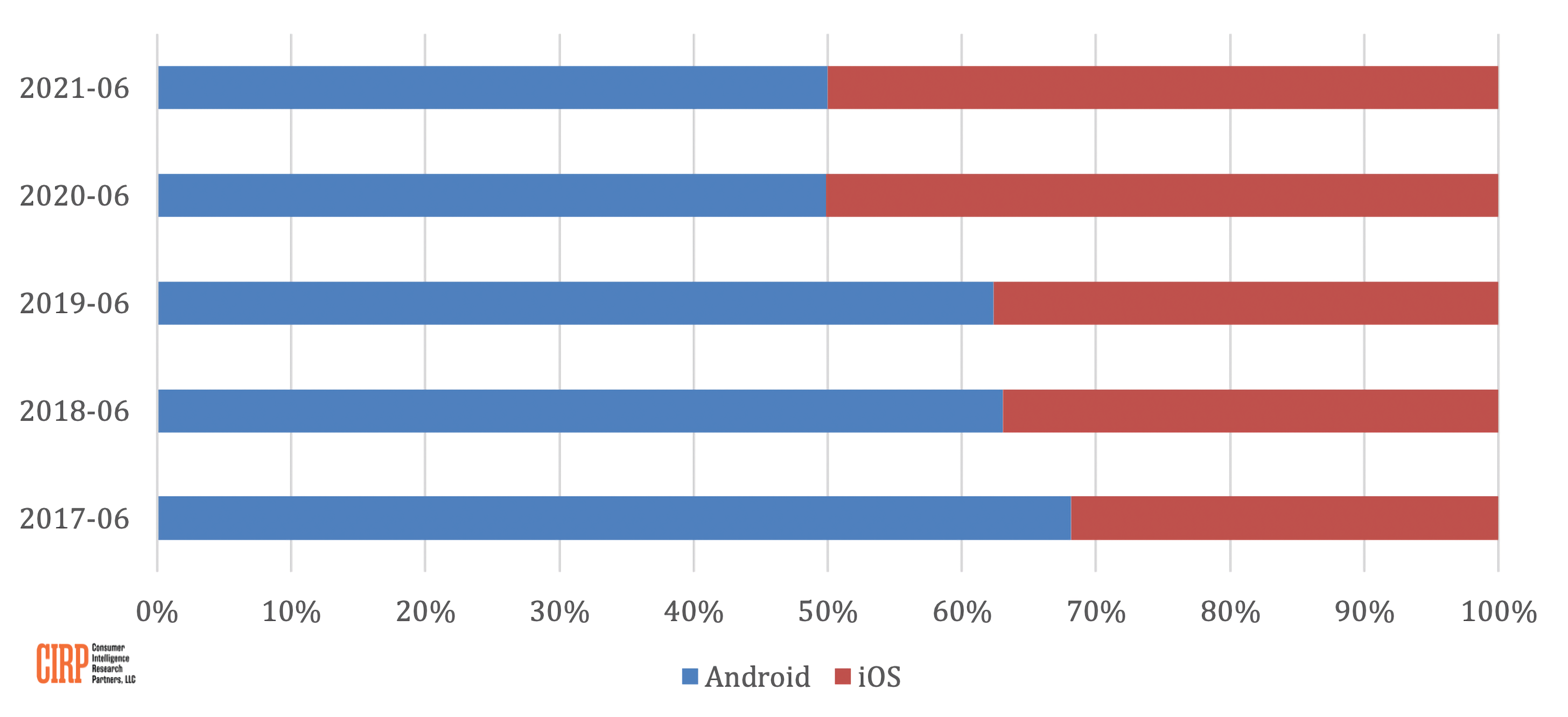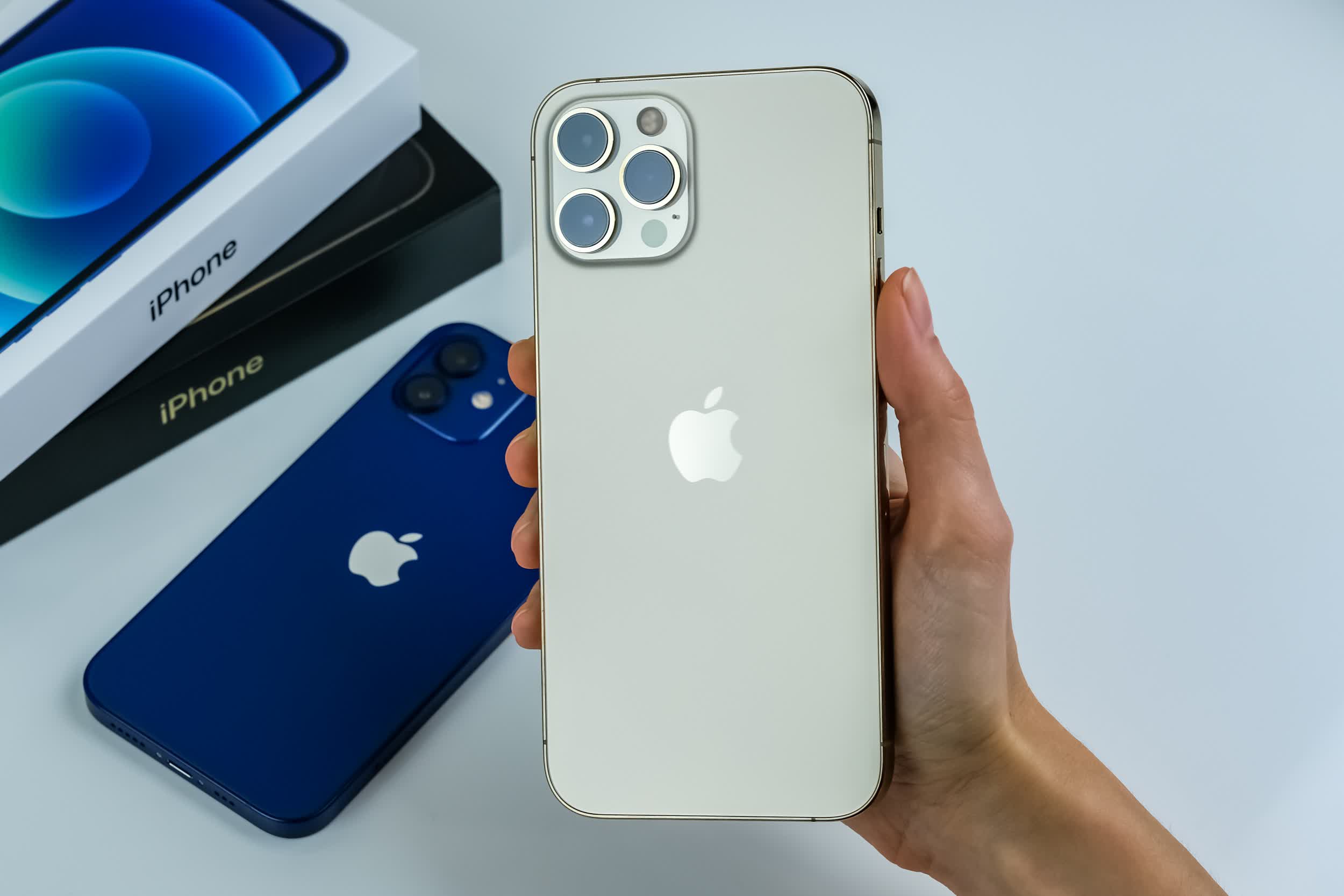In context: Brand loyalty and switching trends have helped Apple gain significant ground in the United States and away from Google's Android mobile OS. This is the second year that see roughly equal number of iOS and Android device activations, but the former is a little better at retaining users when they upgrade their phone.
The latest data from Consumer Research Intelligence Partners (CIRP) is in, and it looks like consumers in the US are evenly divided between the two dominating mobile platforms, Google Android and Apple iOS. According to the market research firm, there's been little change over the last few years in terms of new device activations, which could indicate the market has stabilized.
However, this is a clear and important win for Apple, whose mobile operating system had previously lagged behind Android in terms of new device activations.
Back in 2017, two out of three consumers bought an Android phone and that didn't change significantly until the second half of 2019.

CIRP partner and co-founder Mike Levin says this can be partly explained by looking at loyalty and switching. Both Android and iOS have enjoyed strong loyalty levels over the last five years, with the former retaining 90 to 93 percent of its users and the latter retaining between 86 to 93 percent.
Loyalty of Apple iPhone users has gradually increased to the point where it edges Android's by a slight margin, possibly fueled by a number of factors such as growing mistrust of Android's security and privacy, as well as Apple offering system updates for longer than three years, which is a lot to ask even for some flagship Android phones. In recent years Apple has started to offer more affordable devices like the iPhone SE as well.
CIRP says its latest findings are based on surveys conducted in the US with people who activated a new or used phone in the quarter ending in June, so there is some room for error and this isn't representative of the population at large. However, SellCell's observations on the used phone market do add some weight to CIRP's conclusion that Android brand loyalty is falling, albeit slowly, among American consumers.
Whether or not that's because of better resale value of iPhones at a time when industry-wide shortages are affecting availability of everything with chips inside or because of the perceived benefits of iOS, we couldn't conclusively tell. One thing is certain though, there are now fewer Android manufacturers and they're definitely trying to convert iPhone users into Android adopters, or at least prevent a reversal.
